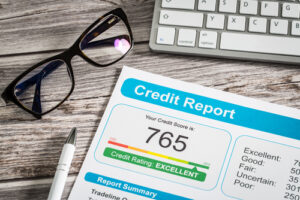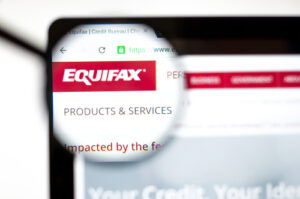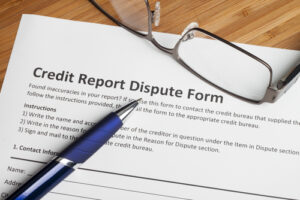A credit report is one of the most important reports regarding your past, present, and future. It shows lenders (companies who are considering granting you a loan, like a bank or a credit card company) that you are responsible and can reliably pay back any debts; critical to making any major purchases (like a house or car).
Unfortunately, if your credit report has a low score, it shows companies that you are unreliable and cannot manage money well. Companies don’t have time to look at every person’s file and go into their entire credit history to understand how they got to where they are finanically – they just need to see the number, decide, and move on.
Credit reports are an important resource that companies review regularly when making big decisions, but that doesn’t mean they are perfect.
Credit reports, like any other piece of information, can be wrong from time to time. In this case, these errors can negatively affect your life and prevent your chances of achieving your goals. Since credit reports can impact your life in major ways, you should always review your credit report to identify and fix any mistakes. Here is how you can find and fix any errors on your credit report.
-
Request Your Report

The Fair Credit Reporting Act was created to ensure that all information on credit reports is accurate and private. The report is a clause that allows people to request a free copy of their credit report once a calendar year (every 12 months).
This report will come from one of the three major credit companies – TransUnion, Experian, or Equifax. There are two easy ways to request this report, either…
- Visit AnnualCreditReport.com
- Call 1.877.322.8228
-
Verify All Information

Credit reports are not a quick document to scan through – you must take your time and review every line to ensure it is correct.
Here are some common mistakes and why they should be checked…
- Personal information (name, address, any known aliases)
Verify all your personal information is updated and accurate. If you see an “alias” on there that is not you, then you may have been the victim of identity theft, and someone may have been hurting your credit through bad transactions. If your name is misspelled, it is likely not a big deal, but such a minor error may mean there are other errors in your report.
- Current and Past Credit Accounts
First, verify that all closed credit accounts are shown to be closed on the account as well. Look for any mistakes such as late payments (if you’ve never made any late payments). Look for any accounts that you don’t recognize, because they may have been opened by somebody else under your name. If you are divorced, make sure your former spouse’s debts are not on your report.
You also must verify accounts are not listed more than once (which would make it look like you have more debt than you have).
- Correct/Incorrect Inquiries
Inquiries are applications for new credit. Review any inquiries to make sure you were the one who made the request (or not).
-
Dispute the Errors

Hopefully, your to-do list ends at #2 above and you don’t need to take any other action.
However, if you have found an error on your report, you must dispute it immediately. Even if it is a misspelled name, you must dispute it, so it can be fixed. Credit reports represent who you are financially, so you must ensure they are 100% accurate.
Once you find an error, contact the credit agency (either TransUnion, Experian, or Equifax) and advise them of the error. You can either contact them by phone, mail or online. Advise them of the errors and ask what the next steps are for you. Agencies are required by law to investigate any valid potential errors within 30 days of being notified.
After contacting the credit agency, you must contact the company that gave the information to the agency (like a credit card company). Whether it is a credit card company or something else, they all have policies they need to follow to investigate and fix any errors on credit reports. Timing is everything here – you cannot wait or delay if you feel some errors are affecting your report.
In closing, if you find any errors on your report that need correction, please follow the above steps. But keep in mind that just because an error is fixed does not mean it will positively affect your credit report. If your name was misspelled, but everything else was correct, then your credit score will not change.
If you find a valid error, you will need to supply proof of the error. E-mails, electronic transaction information – anything to make you appear trustworthy and reliable.
Credit Reports can shape your future, so make sure you are setting yourself up for a fair perspective by reviewing your credit report annually to find and fix any errors.





Leave A Comment